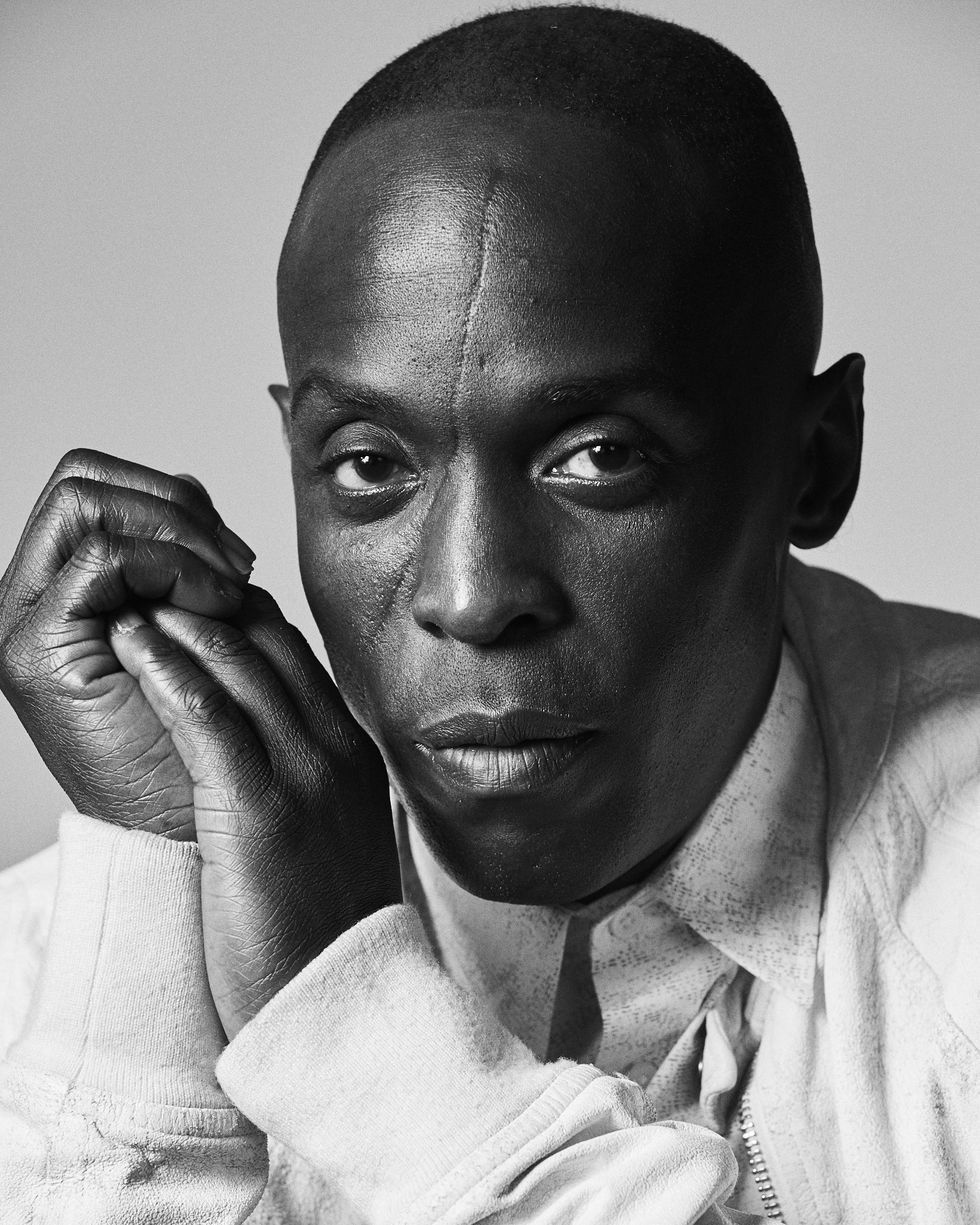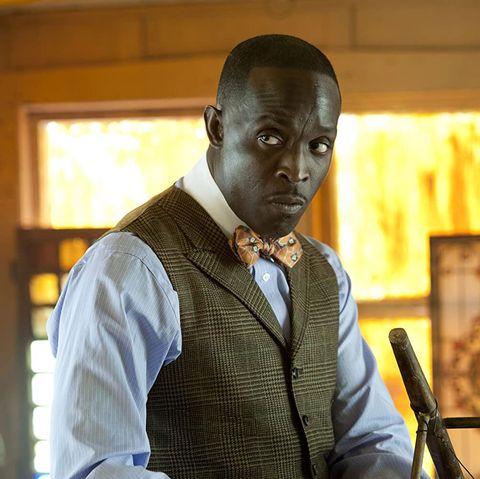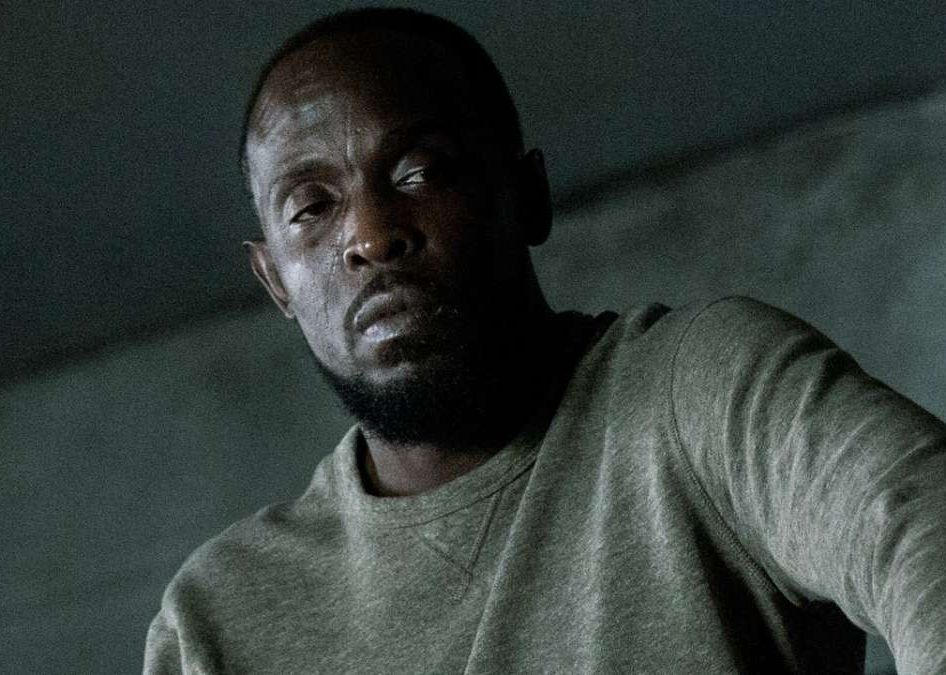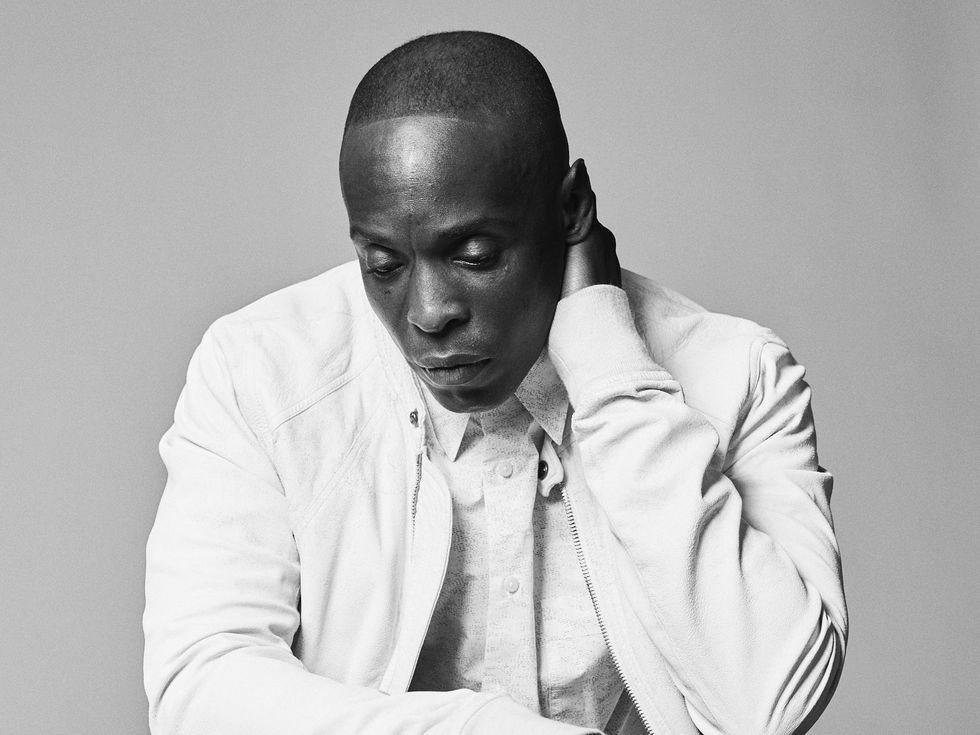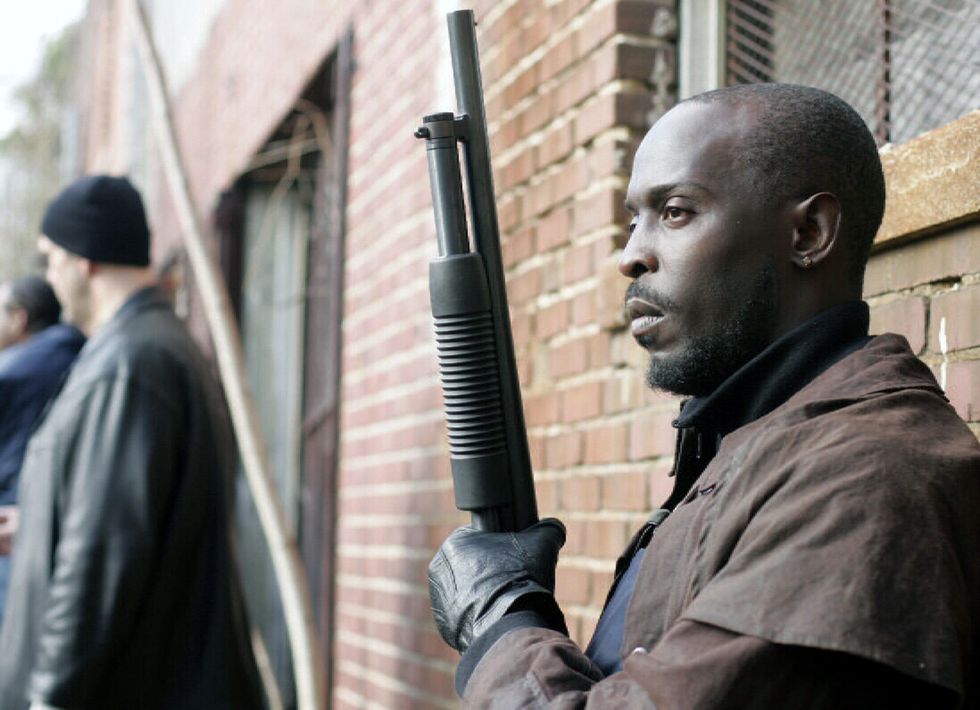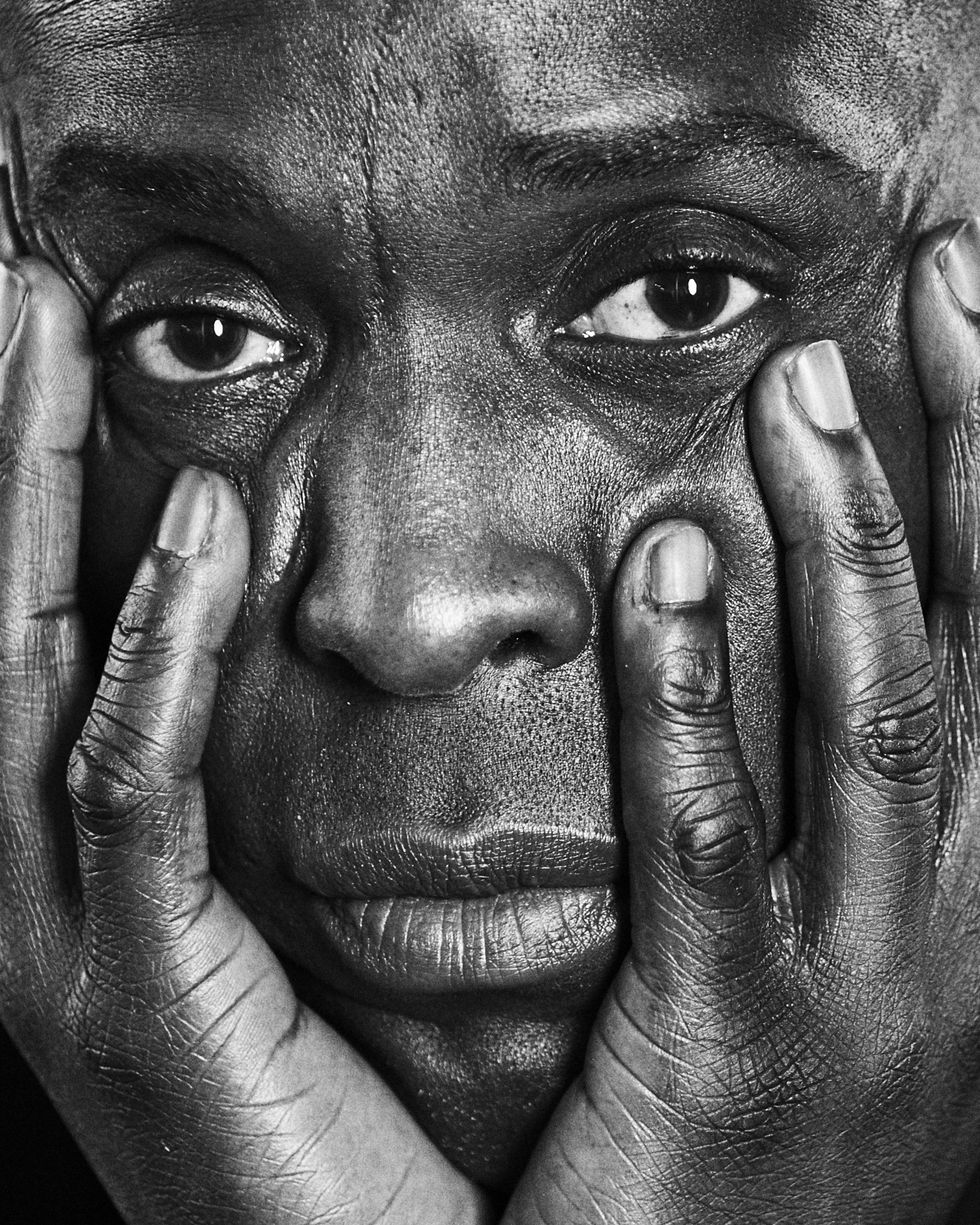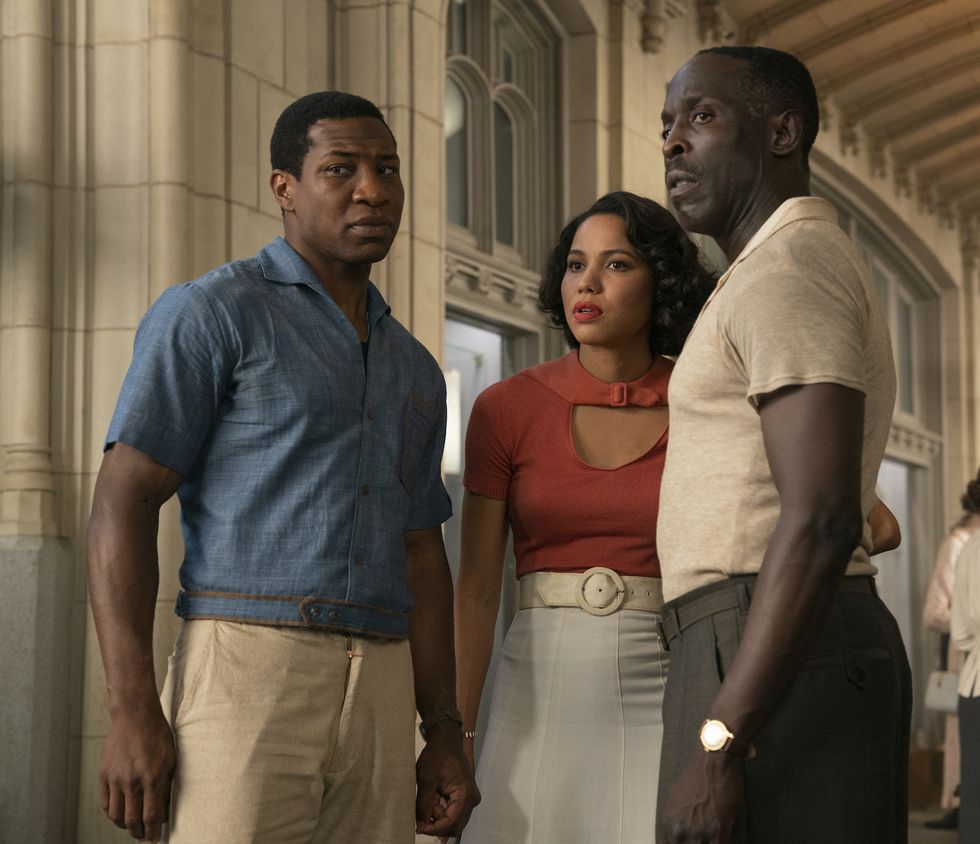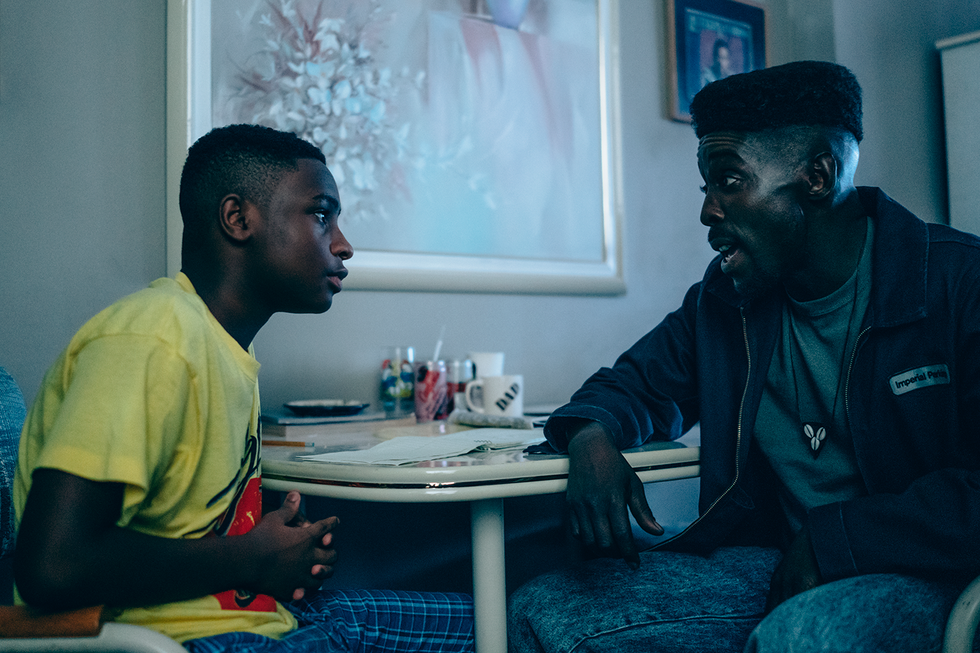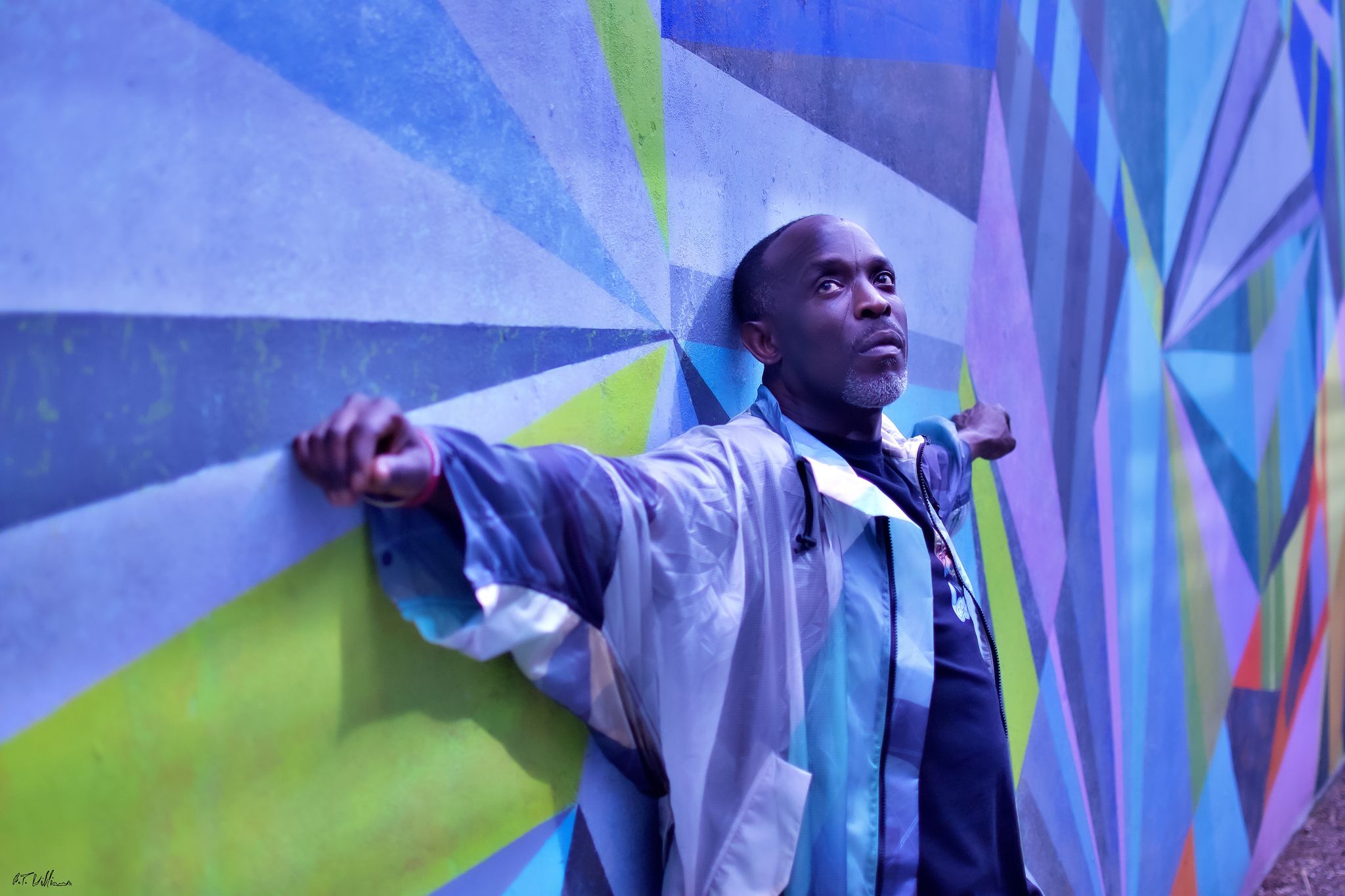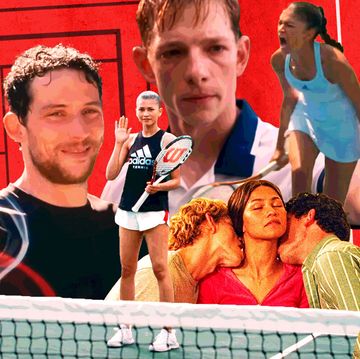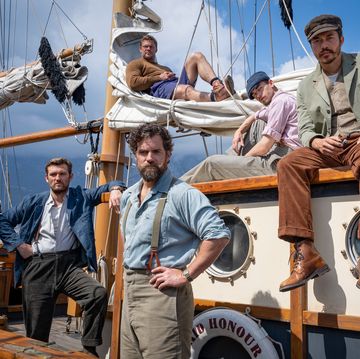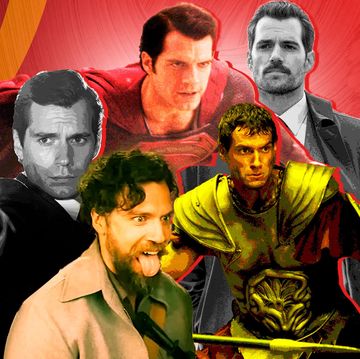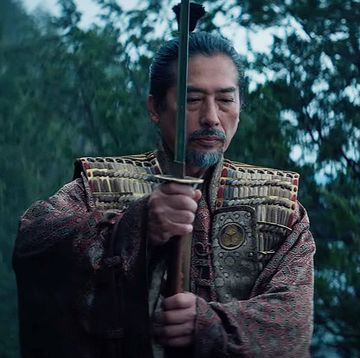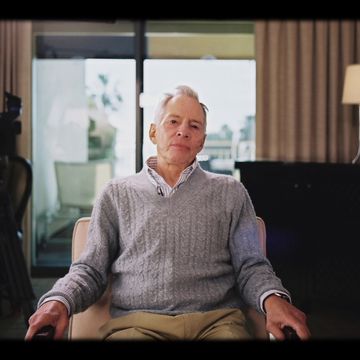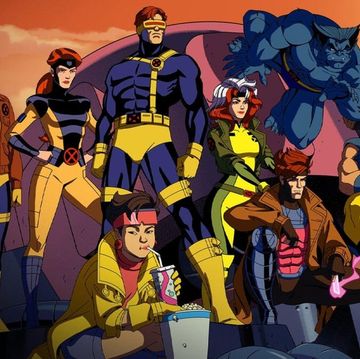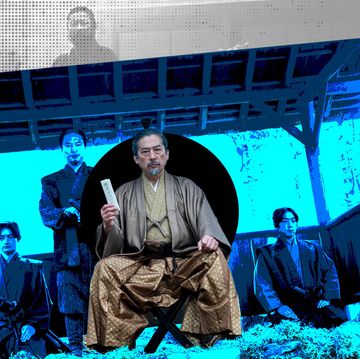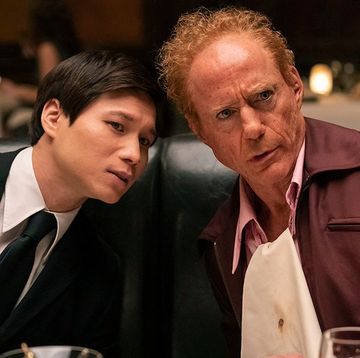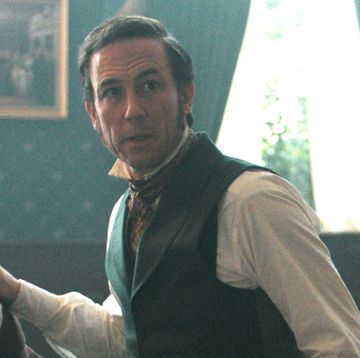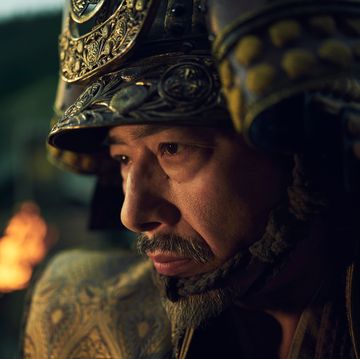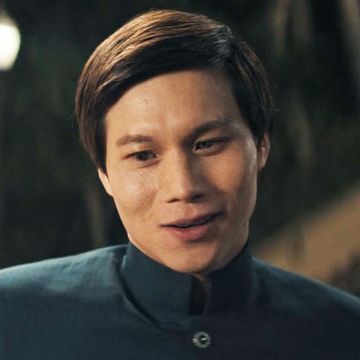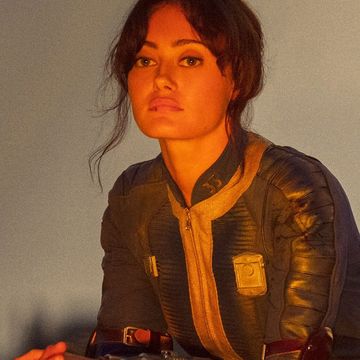WHEN MICHAEL K. WILLIAMS was growing up in East Flatbush, Brooklyn, during the ‘70s and ‘80s, the advice he was given was “get out.”
“Why?” Williams asks over a Zoom call in September. “Why is it that for everyone from my community, everything we’re told to do, is to get out? Get an education to get a good job and get out. Become entertainers. Become a rapper, make a lot of money, and get your mama out. Dribble that ball so you can get the whole family out. Well, where the fuck are we going? Where are we going? Where am I going?”
How Williams “got out” was Hollywood. In the late 80s, still living in Flatbush, Williams found work as a backup dancer. In 1996, Tupac Shakur stumbled across a Polaroid of Williams and became instrumental in getting him cast in his first movie, Bullet, where Williams played a henchman alongside Mickey Rourke.
Then came HBO and Ed Burns, a writer on a series called The Wire. In 2001, Burns cast Williams on the show as a shotgun-wielding Robin Hood, Omar Little. It was Williams’s breakout role. His part, despite being written for just one season, lasted all five.
He’d go on to play a gangster in HBO’s Boardwalk Empire from 2010 to 2014. Two years later, he played an inmate in the miniseries The Night Of, a story about a young man arrested for a murder and later sent to Rikers. For much of 2020, he’s been starring in another show for HBO: Lovecraft Country, a horror series that takes place in the racist depths of America in the 1950s. Williams plays the brash Montrose Freeman, father to the show's protagonist, Atticus (Jonathan Majors).
The roles have taken a toll on him, Williams says. During The Wire, Williams, who had gotten sober in his 20s, turned to cocaine. He got clean after The Wire, but he would relapse and abuse substances off and on throughout the next decade.
But HBO’s Lovecraft Country struck a note no other filming experience has thus far, he says. Its explicit focus on racial trauma—on Black Americans enduring continued racial violence in the '50s, some of whom were attacked during the 1921 Tulsa Massacre—dramatically changed things for Williams.
The visceral nature of that project and its historical connection to his own family “awoke generational trauma.” “Lovecraft just kicked the door off the hinges,” he says.
After he returned home to Brooklyn from filming in Atlanta last winter, he relapsed once more. He immediately sought out Narcotics Anonymous meetings. This year, for the first time, he also tried therapy. And now, he’s gained an even greater perspective on who he is, what he’s experienced, and where he—and the entertainment industry—ought to be headed.
Michael, how are you?
Hey, I woke up late. I had a long night last night, and [now] I'm dining at my little Brooklyn sushi spot … Full transparency: I fucking forgot [about the interview]. I’m sorry. [laughing]
I’m just glad to have you here! How have you been since lockdown?
Like everyone else, I was in limbo. I was finding myself, though. I decided to use this time to sit down, be still, and to reassess who I am as a man, and to connect with family. My mom’s 93 and this job keeps me away from her a lot.
It’s hard to talk about this year and New York City and this summer without talking about the events of May 25th and George Floyd.
Before George, I was actually kind of in a good space. And then that happened. I went numb. I was working on putting together this deck for a non-scripted docuseries called The Aftermath that will go and look at the families of the people who had loved ones [who] were murdered by the hands of the police. To find out: How do they pick up the pieces? How do they move on? I went into the studio to record these lines the day after George Floyd. There were five of us in the studio. Three of us were Black men, two of us were white men, and we all had wet eyes. We were all crying.
Was there ever a moment in your life where you realized things might be different for you than someone growing up, say, across the [East River]—someone who looks different from you?
I was a grown man. I was in my 20s. And I had become a dancer. I was in rooms with different walks of life. Young people, Black and white from New York City. We would go out for lunch after rehearsal. And they would be like: “Oh yeah, you know, so my dad’s gonna, like, lend me the car for the weekend.” And I was like, “You have one of those?” They said, “What a car?” I said, “No, a dad? And he lives in the house? And he gives you the car? Like, I don’t understand.”
When I was around 12 or 13, the ice started to really crack in the foundation of my family structure. My dad relocated back to the South. There was a lot of trauma I was left to deal with in his absence. You know, it was hard for [a] Black woman raising a Black boy in an aggressively violent neighborhood. That was not easy to navigate through alone. But my mom is so stable, so grounded, such a foundation. She created such a foundation for me in the middle of the jungle. But there were certain things that I normalized, the violence, and the murder. And how much [police] criminalize adolescent behavior.
My issues went another way and that took me down the road of chronic abuse. I can’t say I came out of the neighborhood unscathed. You're either using or selling. I was a user.
How did the using begin?
Pain. In a word, a lot of pain. A lot of trauma early on that I didn’t have the proper tools to deal with. My mom was very strict. The beatings were very severe growing up. She was determined to not have her two sons run amok. She had a brother who passed. He was a fighter and went to jail for murdering someone with his bare hands. It was a way of protecting me. It wasn’t an easy childhood, being sensitive, vulnerable. I’m not alpha, in any sense the word of the title. And so I got picked on a lot.
It plagued me, especially [during] my teenage years. It was one of the things that led me to attempt suicide. I was 17. I was lost. I was very awkward with the ladies. Drugs were there. And I was already self-medicating. And I just got lost. I just remember feeling like, “Eh, maybe the world will be better off without me.” And I took a bottle of pills, woke up to my stomach being pumped.
Your relationship with your father, your experiences as a young man—you’re very open to talking about these things. What’s helped you look back on them in this way?
A lot of therapy. I didn't realize that therapy work was so important to my work as an actor until Lovecraft. The aha moment for me was: These stories are waking up generational trauma. These things that I use to breathe life into these characters are very real for me, and a lot of them are still unresolved.
I just figured, you know, when the director yells “cut!” or “that’s a wrap!” it goes away. I thought it all dissipates. And that was not the case.
Can I ask what happened?
You don't really see it coming. You're thinking you’re just going out for a drink with some friends. You don’t set off to have a relapse. At least I don’t. I think I’m fine when I relapse.
That show woke up a lot of demons. A lot. It cut me really close to the bone. I have family members one generation removed from me who were sharecroppers—who were alive during Jim Crow. I got trauma passed down.
You know, as people of color in Hollywood, entertainment, a lot of times we don’t pay attention to the fact that we sell trauma. Some of our most wanting work is rooted—most of the time—in pain and trauma.
I know Hollywood is now employing intimacy coordinators when shooting sex scenes. Do you think maybe they should start hiring racial trauma coordinators?
Woah! It’s funny you should say that. I just had this conversation with my co-worker Jurnee Smollett. She said, "I think that we should have a retreat before we go into second season and discuss all the things that we’re feeling—good, bad and ugly.”
The first time I actually ever saw anything resembling what you just said was with my sister Ava DuVernay on the set of When They See Us. She had grief counselors on set the entire run of the filming production. I think that—especially for people of color, especially right now going back into the workforce—should definitely be something on the table for discussion moving forward.
You’ve said that meeting Obama on the campaign trail in 2008 really changed the way you saw yourself—and your role in your community. What did he say to you?
I just didn’t feel worthy of meeting this man, and I was starting to cower behind my cousin. He’s going through my family: “Hello, nice to meet you. Hello ...” And then one of my cousins says, “Um, Mr. Senator, I understand that you said The Wire was your favorite show.” He goes: “That’s correct.” And she said, “And you said Omar was your favorite character?” He goes: “Yes, that’s correct.” And she goes, “Well Mr. Williams is...” [And Obama goes:] “WHERE OMAR AT?? THAT’S MY MAN! MY MAN WITH THE CODES!” And then he just grabs me, and he gives me a hug. As my mother called it: the “homeboy hug.” And he just talked to me like a regular person.
When he said that The Wire was his favorite show and that Omar was his favorite character, I was like, holy shit, this man who’s running for president of the United States watches something like The Wire? It was the first time I felt seen. I was like, wait a minute. I need to earn this. My personal life needs to match the responsibility that comes with being recognized by a man of this caliber.
One of the things I’ve been doing back in my community is instilling pride. [Ed note: He’s also founded and works alongside several nonprofits that focus on everything from helping underserved kids achieve success to improving local youth and police relationships and stopping gun violence.] By me showing up and walking around, I let them know that I still care about this community, that they still matter to me.
I spent a lot of my younger years not feeling beautiful. When I look back at my pictures now as a kid, I’m like, “Damn, you were actually beautiful.” I couldn’t see it back then. That’s a large thing that makes me go back to working with the youth in my community. I let them know that they’re beautiful.
This interview has been edited and condensed for clarity.
